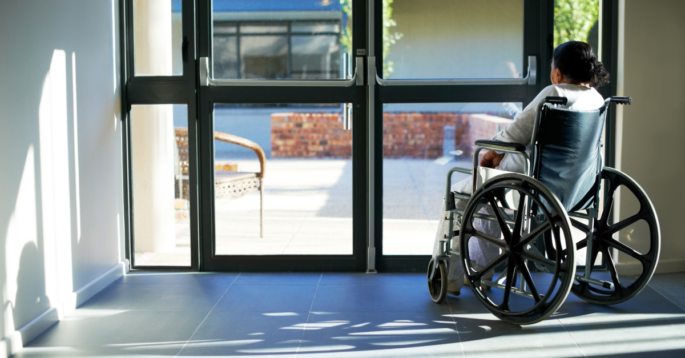On September 1, 2023, the Biden-Harris Administration announced its proposal to create vast changes for nursing homes across the nation. As a result, more residents may be kept safe from nursing home neglect and abuse.
This comprehensive initiative, spearheaded by the Centers for Medicare & Medicaid Services (CMS) and the Department of Health and Human Services (HHS), aims to make nursing homes safer and to improve the care residents receive.
To address the challenges faced by nursing homes, the focus is on 3 key areas:
- Increasing oversight and regulations to ensure nursing homes comply with quality care standards
- Improving staffing shortages to ensure better resident care
- Building the nursing home workforce for enhanced service provision
Find out how these changes could help the 1.2 million older adults residing in nursing homes and their loved ones.
How Will the Biden Nursing Home Plan Work?
Here is a breakdown of the changes the Biden-Harris Administration hopes will support nursing home residents, caregivers, direct care workers, and loved ones of older adults.
1. Stricter Enforcement of Nursing Home Standards
To keep residents safe, nursing homes will face more rigorous enforcement of standards. New measures are being introduced to increase monitoring and accountability. Critical among these are mandatory requirements for adequate staffing.
The HHS Office of the Inspector General will also closely monitor how nursing homes operate, focusing on their use of funds, medication prescribing practices, and readiness for emergencies.
Amid the pandemic, over 200,000 nursing home residents and workers died from COVID-19, accounting for roughly 20% of all deaths in the United States.
These initiatives are designed to elevate the quality of care and protect the welfare of nursing home residents.
Key Points
- The nursing home industry receives $100 billion annually from American taxpayers
- Taxpayer fund usage will be monitored, especially in for-profit facilities
- Audits on staffing practices and data will be expanded
- Emergency preparedness plans will be verified for accuracy and efficiency
- Reviews of inappropriate prescribing of antipsychotic medications will be conducted
2. New Staffing Rules for Nursing Homes
The current staffing requirement for nursing homes is often vague and misused. The proposed rule seeks to set clear, realistic standards to combat the lack of staff training and understaffing in nursing homes, both chronic issues.
Under the new rules, HHS aims to establish new staffing standards for nursing homes, mandating a registered nurse (RN) onsite 24/7. The reforms would also adjust the required number of nurses and aides based on resident numbers in each facility.
To avoid nursing home facility closures due to being unable to meet these new requirements, the administration aims to roll out this rule in phases.
Key Points
- RNs must provide 33 minutes of care per resident each day
- Nurse aides must provide 2.45 hours of care per resident each day
- Around 75% of long-term care facilities will need to hire additional staff to meet new standards
- 36% of nursing homes will need to hire more RNs to fulfill the daily care requirement
3. Strategy to Expand the Nursing Home Workforce
To strengthen the nursing home workforce, the changes aim to offer financial benefits to staff, like grants, scholarships, and tuition reimbursement. Importantly, this move has gained support from labor unions.
These efforts aim to increase the number of trained professionals in nursing homes. This will help ensure that seniors and people with disabilities get better care nationwide.
Key Points
- CMS will increase funding for skilled nursing facilities by over $1 billion for fiscal year 2024
- HRSA’s Nurse Corps scholarship and loan repayment program will use $200 million in funding from the American Rescue Plan
- The Department of Labor’s Nursing Expansion Grant program will provide nearly $80 million in grants
- CMS will invest over $75 million in scholarships and tuition reimbursement to build a skilled workforce
What Could These Changes Mean for Nursing Home Residents?
The Biden Administration’s proposed plan could bring much-needed improvements to nursing homes nationwide, allowing residents to get the care they deserve.
Here’s what the changes could mean:
- Better quality care: Thanks to tighter regulations on the facilities and employees, as well as having more nurses and aides on staff, residents will hopefully get faster and higher-quality care
- Expanded nursing workforce: Having more nurses and aides on staff improves safety measures, including infection control, vaccination rates, and injury prevention
- Improvements to inspections: CMS gains tighter control over inspections, ensuring facilities with deficiencies receive citations for violations
- Increased audits: Collaboration with CMS expands audits for staffing reports, providing more accurate information
- More oversight for spending: Enhanced oversight of taxpayer funds used by nursing homes help prevent profiting at the expense of resident well-being
- Nursing home safety during emergencies: Improved emergency preparedness plans help vulnerable nursing home residents during public health crises
Find Help for Nursing Home Abuse
The crisis in nursing homes is ongoing. Many struggle with chronic understaffing, resulting in subpar care that puts residents at risk. Residents may go without essential care, experience preventable injuries, and even face premature death.
The Biden nursing home plan offers hope, aiming to enhance care quality and resident well-being.
While the plan holds promise, waiting for government intervention may not be the best choice if your loved one is mistreated.
Report mistreatment immediately, as neglect and abuse can escalate rapidly. And consider contacting an experienced nursing home abuse lawyer.
Working with a nursing home attorney can ensure that your loved one is kept safe and that negligent facilities are held accountable.
If your loved one has experienced nursing home abuse or neglect, don’t wait.
Call (855) 264-6310 or fill out our form right now to see if you can take legal action against a negligent nursing home.

